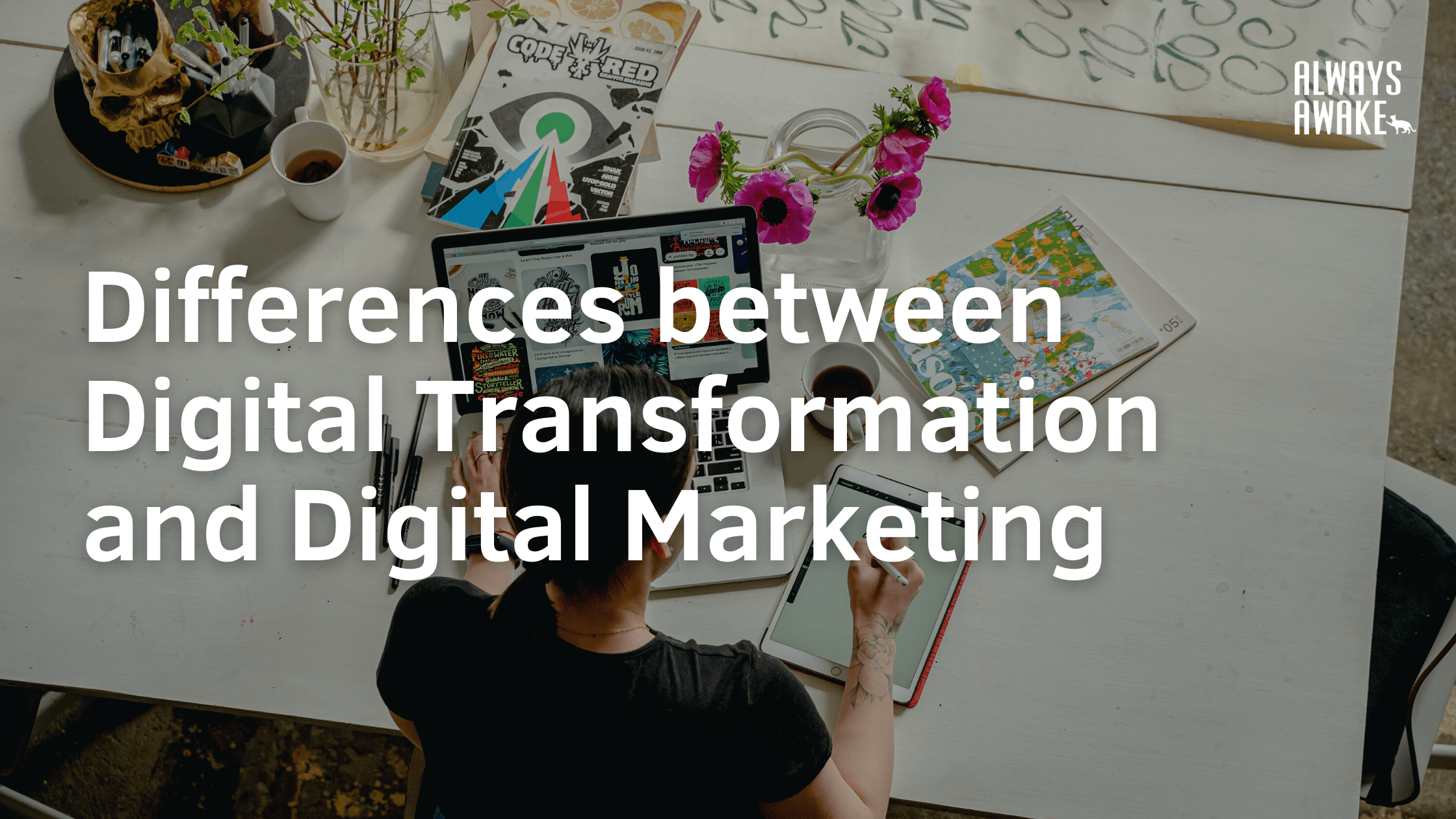
Differences between Digital Transformation and Digital Marketing
Digital Transformation and Digital Marketing, two that are often used interchangeably with many even confusing the words from one another given that they all pursue to leverage the advancements in today’s digital tech. While there are fair differences and similarities between them, many still wonder why the lines are blurred. So let us understand what digital transformation and digital marketing is, what differentiates them, and how they are connected to each other.
What is Digital Transformation?
Digital transformation comes from a simple fact: The world is going digital.
From banking to shopping to communication… and everything in between, many of our daily tasks are now digital.
A modern company must transform itself and adopt the processes and technology needed to operate in today’s trend of the digital world. The issue here is that many businesses are not ready for this new reality, as they are stuck in traditional business models and finding it tough to rework, build new and better ways of growth from scratch by leveraging the foundation of technology, design thinking, agile development and establishing digital culture.
Digital transformation to transform the way you approach your business, is a growing concept that promises businesses with great things, such as innovation, profits, and streamlined processes, just to name some. This idea of reviewing how we use innovative technology to create new profiting streams and business models is not that new. As such, business transformations should be a journey, not just a moment of hype fueled by innovative technology. It’s something that businesses cannot afford to ignore, especially in these recent times.
What is Digital Marketing?
Digital marketing is another form of marketing strategy tactic used to attract, engage and convert customers online. Think of it as the digital cousin of traditional marketing (like magazine ads, billboards and direct mail).
Many components make up Digital Marketing, namely content marketing, social media marketing, email marketing, online ad campaigns across the various media platforms / channels, search engine marketing, and more. It can come in many forms such as videos, podcasts, as well as social media posts.
There are many better options and opportunities in digital marketing and that’s one of the main reasons why it’s gained so much attention as the way to grow business these days. Moreover, it’s lower cost entry point makes it much more attractive, as compared to traditional forms of marketing, landing a sweet spot with small business owners and startup entrepreneurs. It is also a customer friendly approach that makes the engaging process with your business easier and direct, and this increased engagement helps you with explicitly focusing on your target audience.
Final Note
Truth be told, digital marketing is part of digital transformation. As we mentioned before, digital marketing can be regarded as a tool that zooms into the promoting and marketing aspect of your business. Digital transformation is a concept that covers all parts of your business transformation processes towards digitalization, integrating people and technology while utilizing innovation and automation to make the lives of your clients and employees better.
Both are parts of the digitalization taking place in the world, that’s obviously been sped up by the pandemic in 2020, pushing almost every business model to embrace digital.

